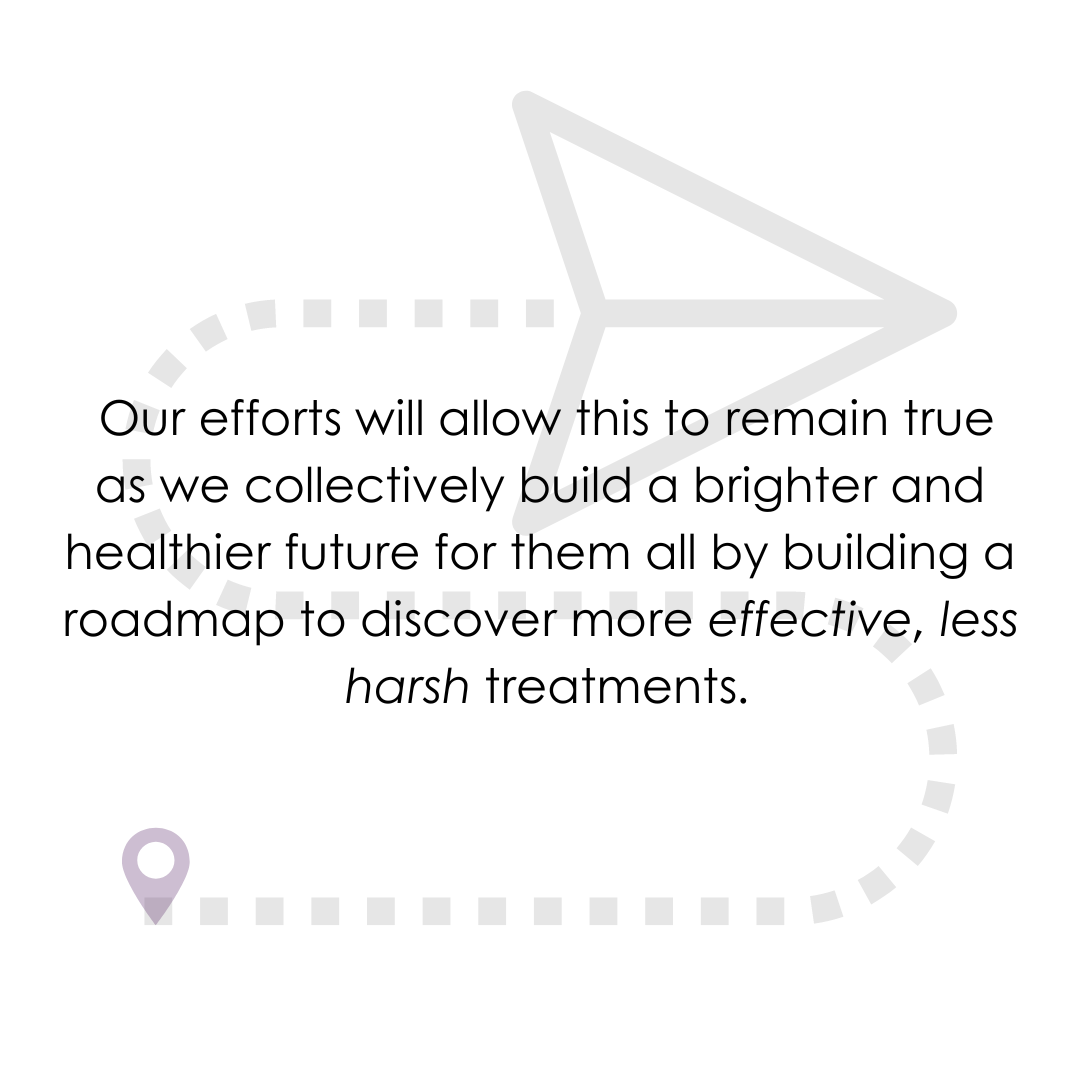Justin Spoon
A Son, Brother, Collegiate Runner, and Asbury Graduate Diagnosed with Rhabdomyosarcoma
“Today, you don’t have to do something special.
You don’t have to do anything amazing or overwhelming.
You just gotta get of bed and do something.”
– Justin Spoon
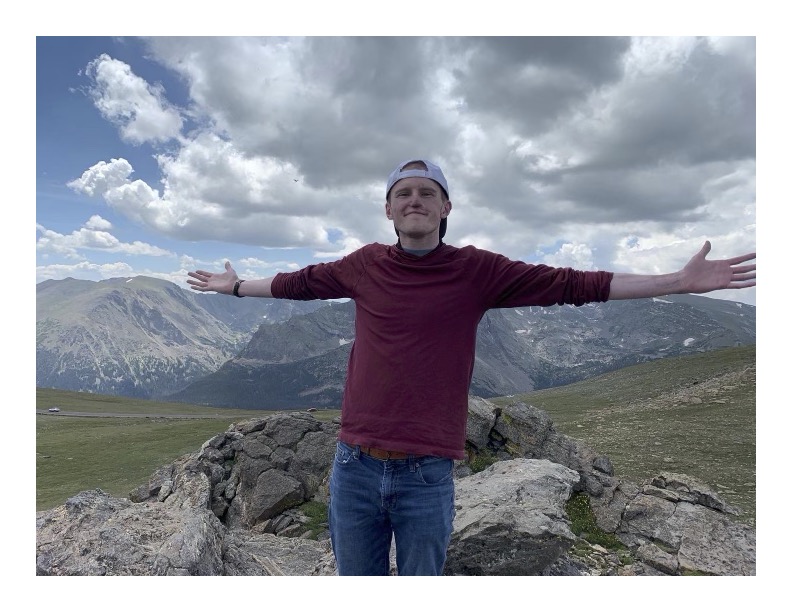
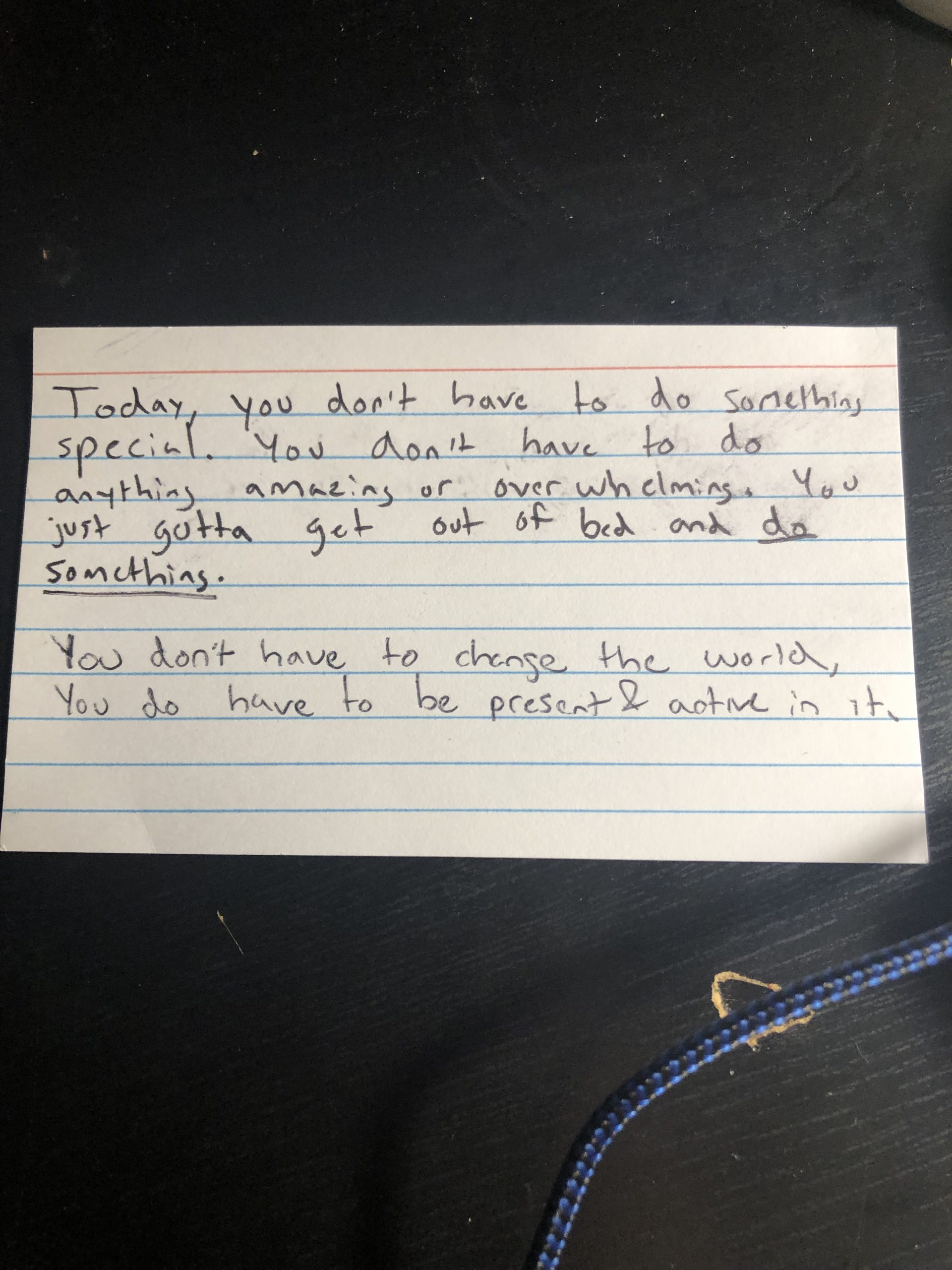
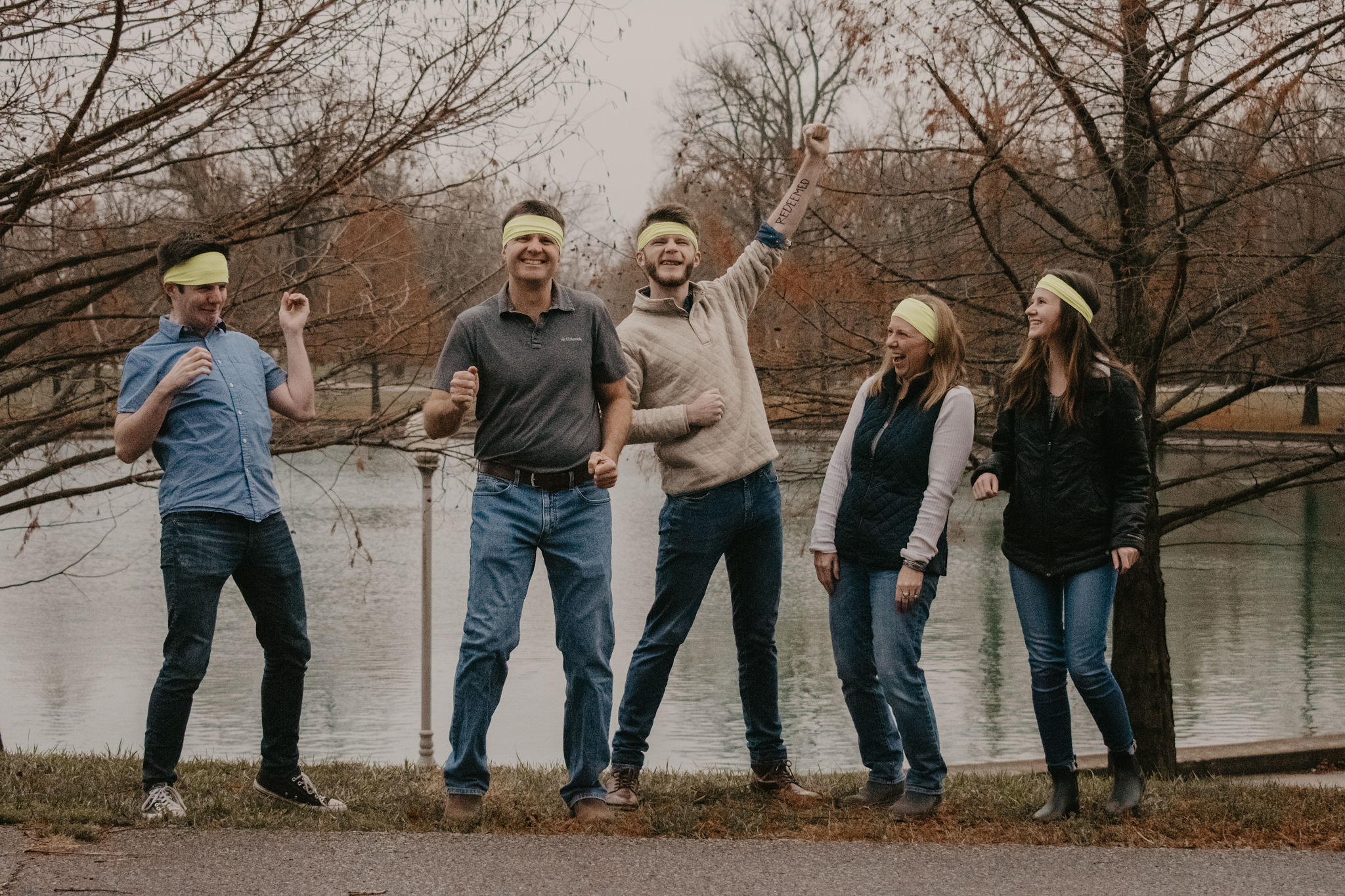
– A mother’s share:
Sitting in a small Lexington, Kentucky clinic room with my then 21-year-old son and my husband, I will never forget hearing the doctor say to our son, “You have rhabdomyosarcoma, which is cancer.” Justin reached over, squeezed my hand, and glanced at me to let me know he was ok. The small, relatively painless lump near his left nostril now had a name. The doctor proceeded to hand me a sheet of information about the disease, which explained that rhabdomyosarcoma is rare, with only about 500 total diagnoses in the US each year and only a small percentage involving those above the age of 18—I immediately had a bad feeling.
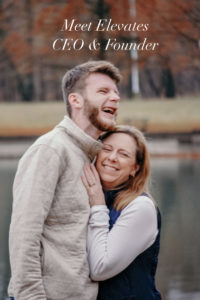
I will never stop being grateful for my training during my doctoral program; it was during this time that I began to understand academic and university research practices, human-subjects research methods, and data analyses, complete with the limitations and strengths of such work. I also learned to read manuscripts and how to search for and identify reliable and valid research. Armed with this knowledge, I purchased a molecular biology textbook to understand pediatric cancer literature better. I then read everything I could about my son’s disease. Unfortunately, I discovered another hard truth: outcomes for the disease weren’t great and had remained stagnant for decades! Oof!
I was confused. How could this be?
Hadn’t we progressed science and cancer research in recent years?
Unfortunately, this progress is limited and mostly focused on those diagnosed with more common adult cancers. My understanding of this problem coincided with the reality that Justin’s cancer hadn’t responded to the standard of care therapy for intermediate-risk rhabdomyosarcoma, VAC (Vincristine, actinomycin-d, Cyclophosphamide). His medical team intensified the chemo to include doxorubicin and ifosfamide, and he endured a complex 14-hour surgery to remove the tumor from his upper jaw. For weeks leading up to this resection, our family researched options to donate his tumor. While he was being treated at Cincinnati Children’s Hospital, the decision was made to donate his tumor to the Pollok Lab at Indiana University Wells Center for Pediatric Research, where cell lines of his super rare tumor (FUS-TFCP2 ssRMS) have been developed.
His treatments marched on, and after 12 rounds of chemotherapy (first VAC and then Doxorubicin/Ifosfamide/Etoposide), 33 proton therapy treatments, and a partial maxillectomy (removal of the upper jaw), and countless infections, Justin had a brief pause of “No Evidence of Disease (NED)”. Unfortunately, weeks after the end of treatment, and the second ringing of a bell, Justin developed a systemic fungal infection from his battered immune system. After 21 harrowing days in the ICU, we were sent home with a host of home health support, including IV-based antifungals for months and oral antifungals for a full year. Justin’s dad and I developed a solid working relationship with his medical team during this time, and learned first-hand the risks of high-dose chemotherapy. By this point, I was a mom on a mission.
Where on earth were the targeted therapeutics for these children’s cancers I see regularly advertised for adult cancers?
In the winter of 2021 and through the spring of 2022, when Justin was on a maintenance protocol and enjoying a period of “No Evidence of Disease” or NED, our family enjoyed a short window of watching Justin “do life”. He simply wanted to live like a young adult. This was largely the result of an off-label drug that had been developed for non-small cell lung cancer but shared a specific target found in Justin’s cancer. We fought for nearly 10 weeks with insurance and Medicaid before he was finally granted use directly through the pharmaceutical company.
So, he applied and was accepted into graduate school. He had his own apartment, began working again at a local clinic for children with autism, and served as the assistant cross-country coach for a local high school. Before cancer, he had been a nationally–ranked collegiate distance runner. Despite being hammered by 18 months of chemotherapy, he returned to running up to 8 miles a day. He maintained hope of running “Boston” (the marathon) one day. At the end of June, he told us that he had a concerning lump in his upper jaw, very close to the original tumor. Updated scans revealed a concern for relapse, which a biopsy confirmed. And our lives turned upside down once again.
Throughout that fall, we pursued every possible avenue imaginable. He endured a second maxillectomy, and then after additional full-genome sequencing, various immunotherapy, chemotherapy, and other therapies. We tried everything, except a drug trial. So, in the fall of 2022, Justin was offered the chance to enroll in a Phase One CAR-T trial. He pursued it with all the gusto of a “Hail Mary”. Our threesome headed off to the Pacific Northwest that winter hoping for a cure. Like so many families facing this tough diagnosis, we lived life in a city far from home and endured nearly a month of intensive care.
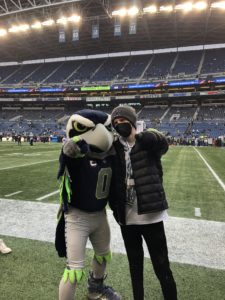
It became obvious the trial wasn’t working, and we barely made it home to the Midwest so that we could spend Justin’s final weeks in our home surrounded by friends and loved ones.
Justin died on March 23, 2023.

“People might not remember what time I ran or the place I finished, but they remember how I acted, how I treated them…thus for me to wear that green is to know that all eyes are on me to be fearless, relentless, in both competition and kindness, and set an example for those around me to follow.” – Justin Spoon
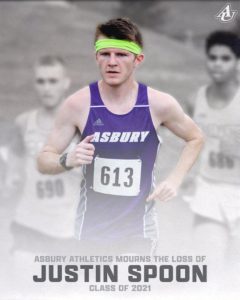
Explore the Elevate Rhabo workgroup
What are we doing?
“Elevate workgroups are the core of Elevate Childhood Cancer Research and Advocacy, Inc.” – Chris Osborne, Elevate Board Chair
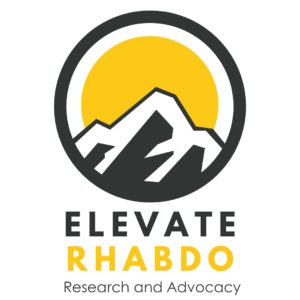
Elevate Rhabdo is a part of the advocacy committee within Elevate Childhood Cancer Research and Advocacy with two main priorities:
1. Create useful educational materials and programs to help
families better advocate within the medical system on behalf of their child
AND
2. Enable patient/advocates and caregivers (PACs) to instigate improvements
in therapy development for children diagnosed with cancer
Elevate is reimagining treatment for those diagnosed with childhood cancer, like Rhabdomyosarcoma and we need your help. Our efforts will collectively build a brighter and healthier future for our children by building a roadmap to discover more effective, less harsh treatments.
Join Elevate
We rely on your support. Whether you choose to donate, volunteer for an upcoming event, or simply share our blog post, every action counts. Together, we can elevate childhood cancer research and reimagine treatment for those diagnosed, provide hope for long, healthy lives so we can ‘let kids be kids.’
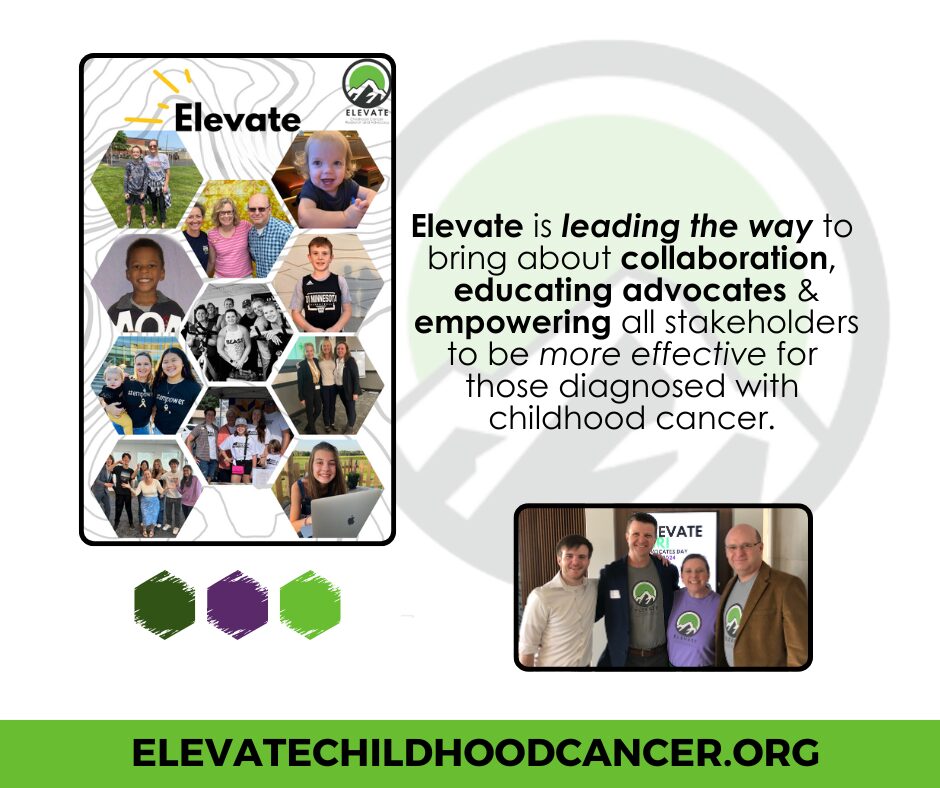

@2023 ELEVATE Childhood Cancer Research
and Advocacy, Inc.
is a registered 501(c)(3) non-profit organization.
EIN: 93-2185372
Join us! Stay up to date with our work and mission, sign up for Elevate's newsletter!
Please help keep our site secure and solve this problem.
We respect your privacy and will never sell or share your information.
